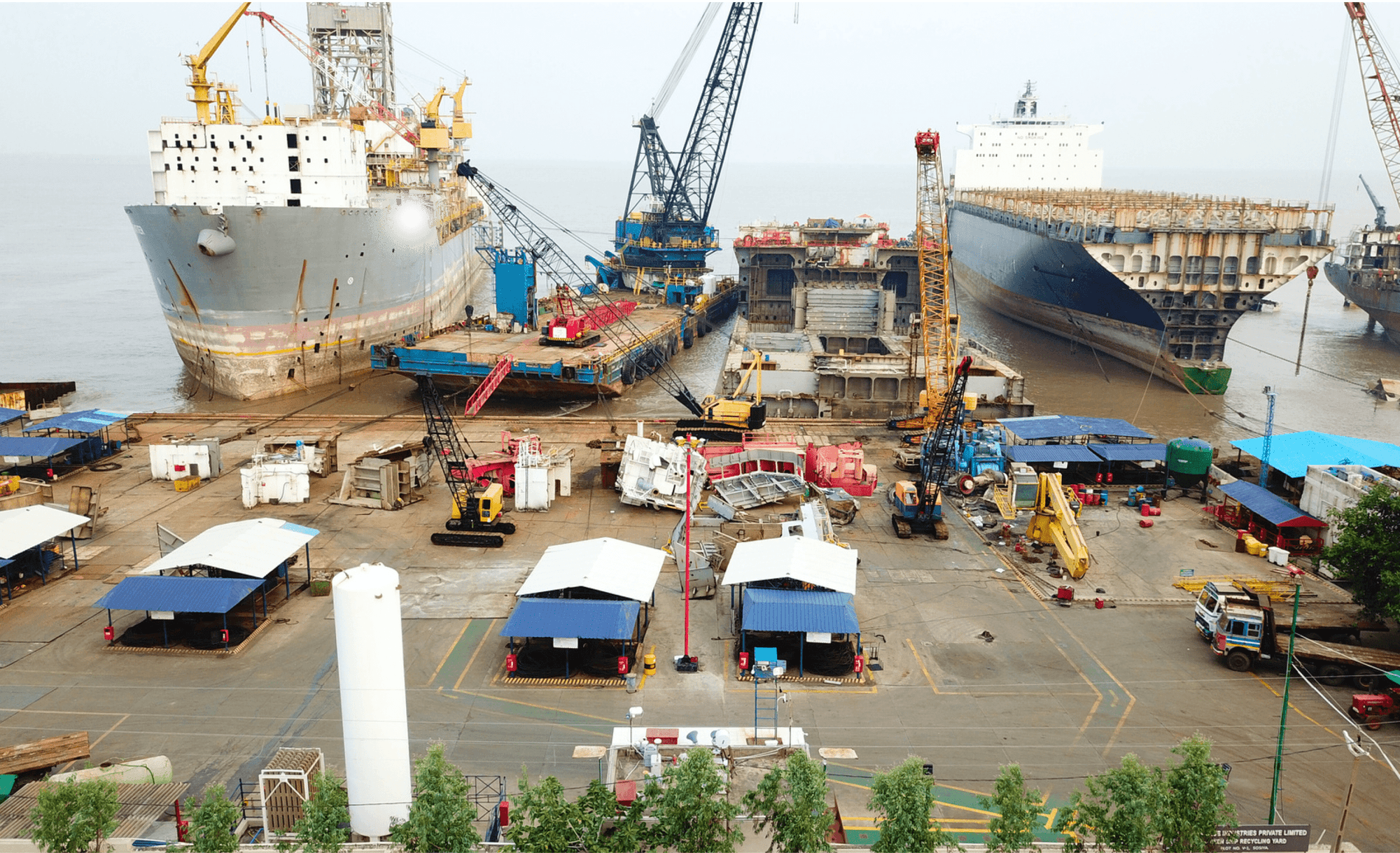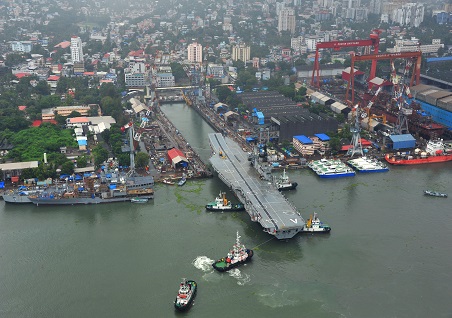BIMCO’s Documentary Committee Adopts AUTOSHIPMAN Agreement to Support Growing Remotely Controlled Ship Sector

In a significant move towards the future of maritime shipping, BIMCO’s Documentary Committee has introduced the AUTOSHIPMAN agreement, a landmark contractual framework designed to address the unique needs of the growing market for remotely controlled ships. This move comes in response to the increasing number of such vessels being deployed, particularly in inland waterways and coastal trades. AUTOSHIPMAN, developed by an expert drafting team, establishes a standardized foundation for third-party ship managers tasked with managing the operations of remotely controlled or fully autonomous ships.
“Currently, remotely controlled ships operate commercially in several parts of the world. We are seeing growth in this sector with several companies emerging and offering remote control management services to shipowners,” remarked Captain Ajay Hazari, from Anglo Eastern, who led the drafting of the AUTOSHIPMAN agreement.
Addressing a New Era in Shipping
Remotely controlled and autonomous ships are no longer a distant concept. These vessels are already being deployed in commercial operations, with many companies exploring remote ship management as a viable and cost-effective solution. The AUTOSHIPMAN agreement marks a major step forward by providing the legal and operational framework necessary for managing these ships, which differ fundamentally from traditional crewed vessels in their requirements, risks, and regulatory considerations.
The AUTOSHIPMAN agreement is built upon the widely used SHIPMAN contract, a familiar foundation in the maritime industry that governs commercial ship management services. This well-established framework has been adapted to address the specific challenges associated with remotely controlled and autonomous vessels. The new agreement lays out the obligations, responsibilities, and liabilities for ship managers overseeing these technologically advanced ships, ensuring that legal certainty and operational clarity are maintained in this rapidly evolving sector.
One of the key innovations in AUTOSHIPMAN is its emphasis on flexibility. This agreement is designed to accommodate the unique operational needs of remotely controlled ships, which may need to switch between different modes of operation even during the course of a single voyage. For instance, while a ship may operate autonomously or under remote control in international waters, it may be necessary to have a human crew onboard when entering a port or passing through a jurisdiction where legal requirements mandate human presence.
This flexibility is crucial as regulatory frameworks around the world are still evolving to keep pace with the technological advancements in the maritime sector. Countries and regions may have differing requirements regarding the operation of remotely controlled ships in their territorial waters, and shipowners and managers need to be able to adapt quickly to these varying legal landscapes. AUTOSHIPMAN provides the contractual support to do just that, making it a critical tool for companies venturing into this new era of shipping.
Legal and Insurance Insights Inform AUTOSHIPMAN Development
The development of the AUTOSHIPMAN agreement was no small feat, requiring input from a range of stakeholders including legal and insurance experts. As BIMCO explored the intricacies of remotely controlled ship operations, it became clear that these vessels introduce new risks and responsibilities that differ significantly from those faced by traditional ships. Liability issues, insurance coverage, and the delineation of responsibility between ship managers and owners are all areas that require careful consideration during the drafting process.
Grant Hunter, Director of Standard, Innovation, and Research at BIMCO, emphasized the collaborative nature of the agreement’s development. “During the development of AUTOSHIPMAN, we were assisted by legal and insurance experts, and we have gained valuable insight throughout the process from companies who are already operating ships remotely around the world,” said Hunter. This expertise helped to ensure that the AUTOSHIPMAN agreement not only provides a robust framework for current operations but also anticipates future developments as the industry moves towards greater levels of automation and autonomy.
Hunter’s comments reflect the recognition that while remotely controlled ships are becoming more common, the industry is also looking ahead to the eventual integration of fully autonomous ships. Although such vessels are not yet in widespread commercial operation, they represent the next logical step in maritime innovation, and AUTOSHIPMAN is seen as a foundational piece in preparing the industry for this future.
Growth of the Remote Ship Management Sector
The introduction of AUTOSHIPMAN comes at a time when the market for remotely controlled and autonomous ships is on the rise. Several companies around the world are already operating such vessels, primarily in restricted environments like inland waterways and coastal areas, where the operational risks are lower than on the open ocean. These ships are equipped with advanced sensors, communication systems, and remote control technologies that allow them to be managed from shore-based control centers, often located far from the actual ship.
The appeal of remotely controlled ships lies in their potential to reduce operating costs and improve efficiency. Without the need for a full crew onboard, shipowners can save on labor costs and reduce the risks associated with human error. Additionally, remote control systems can optimize the ship’s route, speed, and fuel consumption in real time, leading to greater environmental sustainability. These advantages have led to a growing interest in this technology, with companies seeking to expand its use into broader areas of commercial shipping.
At the same time, the operational and regulatory challenges of remotely controlled ships cannot be overlooked. As noted by Captain Hazari, there is still significant work to be done to ensure that these ships can operate safely and efficiently in all environments. The AUTOSHIPMAN agreement is a critical part of this effort, providing a standardized approach that can be adopted across the industry to ensure that remotely controlled ships are managed effectively and in compliance with legal requirements.
A Future of Autonomous Shipping?
While AUTOSHIPMAN is primarily focused on remotely controlled ships, it also lays the groundwork for the eventual deployment of fully autonomous ships. These vessels, which could operate entirely without human intervention, represent the cutting edge of maritime innovation. However, significant technological, regulatory, and operational hurdles remain before they can become a widespread reality.
BIMCO’s decision to introduce AUTOSHIPMAN reflects the organization’s forward-thinking approach to the future of shipping. By creating a framework that addresses the needs of remotely controlled ships today, BIMCO is helping to ensure that the maritime industry is prepared for the challenges and opportunities of tomorrow.
In conclusion, the adoption of the AUTOSHIPMAN agreement by BIMCO marks a major milestone in the commercial operation of remotely controlled ships. As this sector continues to grow, AUTOSHIPMAN provides a crucial tool for shipowners, managers, and regulators to navigate the complexities of this emerging technology. With its emphasis on flexibility, legal certainty, and operational efficiency, AUTOSHIPMAN is set to play a key role in shaping the future of maritime shipping.
Author: shipping inbox
shipping and maritime related web portal








